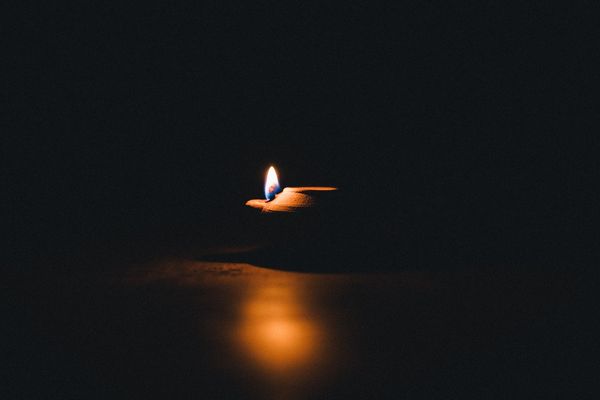
Being Less of a Jerk About Faith
One of my recurrent ruminations of the last decade or so is a bit of reflection on my relationship with religion. To be clear: I don’t have one. I know there are no gods, that the supernatural does not exist, and that we should not base morality on mythology.
But I was raised Hindu, my family co-founded our local house of worship, and I was raised with a keen awareness of my family’s work to protect religious minorities from oppression. So I was raised with a respect for faith and for religions. It’ s a respect that, frankly, I seldom show. I also understand the fundamental human desires that drive people to seek out the ritual, community and reassurance of religions; It’s only natural that people would gravitate toward any structure which addresses those needs, even if I feel they are better met through science, government, community and activism.
My reasons for being frustrated with, and unforgiving toward, organized religions are the obvious, even trite, ones. Religions are used as tools of oppression, religion is used to prop up other institutions which are unjust, important values of our secular society in America are being undermined by religious extremists, and I’ve personally had any number of unkindnesses inflicted upon me by people in the name of their religions.
To be clear, I don’t much distinguish between the relative “goodness” or “badness” of any of the major religions. The Abrahamic family of Judaism/Christianity/Islam are pretty much indistinguishable to me, and are perhaps most pervasive in triggering my annoyance due to their inescapable influence on American life. But I’m just as offended by the Hindu extremists in India and by the privilege my own family’s benefitted from in being part of that religion’s highest caste.
Great, Another Annoying Atheist on the Internet
None of this is so new; Finding an atheist being annoyed with religion on the Internet is as easy as finding cat pictures. What I’ve been struggling with, instead, is figuring out why the hypocrisy and intolerance and ignorance of the religious bothers me so much more than the hypocrisy and intolerance and ignorance of, well, people in general. I generally love to champion unpopular perspectives, or to advocate for mainstream ideas that are considered gauche or uncool by the cultural elite. More importantly, many of the ideas that are most important to me are far easier to discuss with my friends who have a faith.
Forgiveness and atonement, detachment and grace, kindness and kinship — these ideas are so bound to religion in our culture that many people I talk to get confused when I use them in a secular context. Yet they’re ideas that are important enough to me that they preoccupy a lot of my thoughts every day, and a logical response would be to discuss these concepts with those who care about them, regardless of what beliefs they profess.
Reckoning
The tension between my desire to in keeping with values of kindness toward others and the undeniable frustration I feel when confronted with people trying to impose their religious beliefs came to a head again a few months ago when I spoke at the Plywood Presents conference in Atlanta.
It was a great event, very well run, and I was relatively happy with how my talk came out. But the best talk of the event happened the first night, when Father Gregory Boyle of Homeboy Industries paid quiet witness to his work with gang members in Los Angeles.
Father Gregory epitomizes the best of belief, a nearly unfathomable well of goodwill toward others. And he spoke earnestly, honestly and uncompromisingly about kinship. I experience these ideas in the context of citizenship rather than faith, but that seems a silly and trivial distinction to focus on. And none of this is peculiar or unique to me; I can see friends who are also non-believers reckon with the same ideas as well.
What, then is my conclusion? I don’t yet know. If faith is about comfort in the face of unanswerable questions, then I should at least be comfortable with questions that are merely difficult to answer. Until I know how to be better about my shortcomings here, I’m settling for a placeholder that at least acknowledges I haven’t met my expectations for myself. Yet.